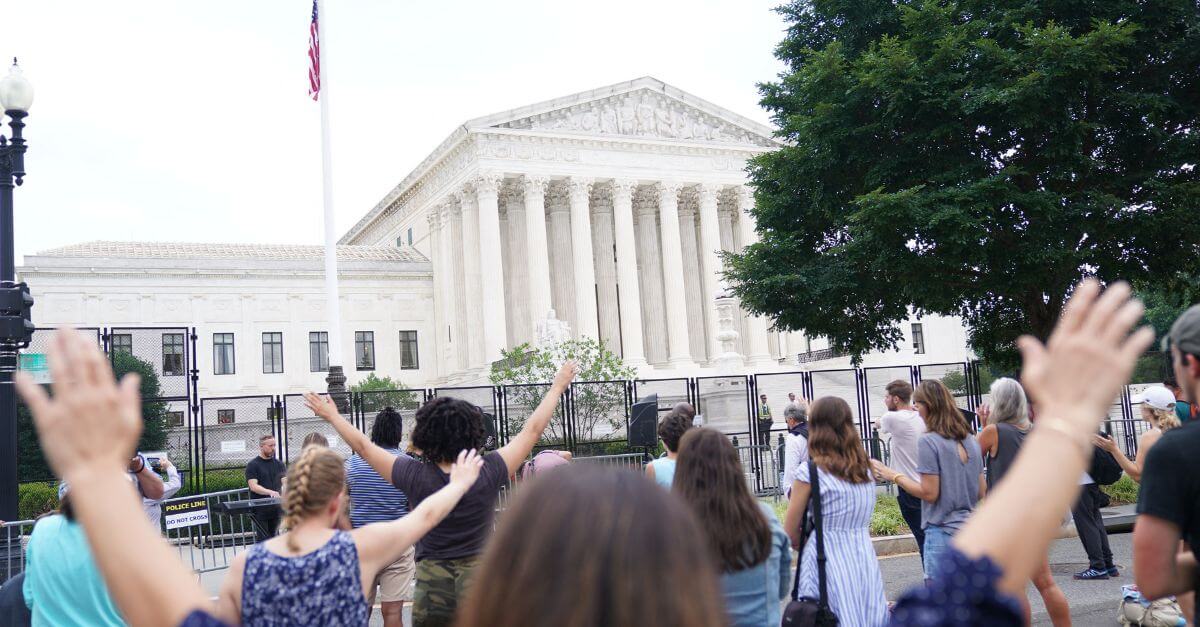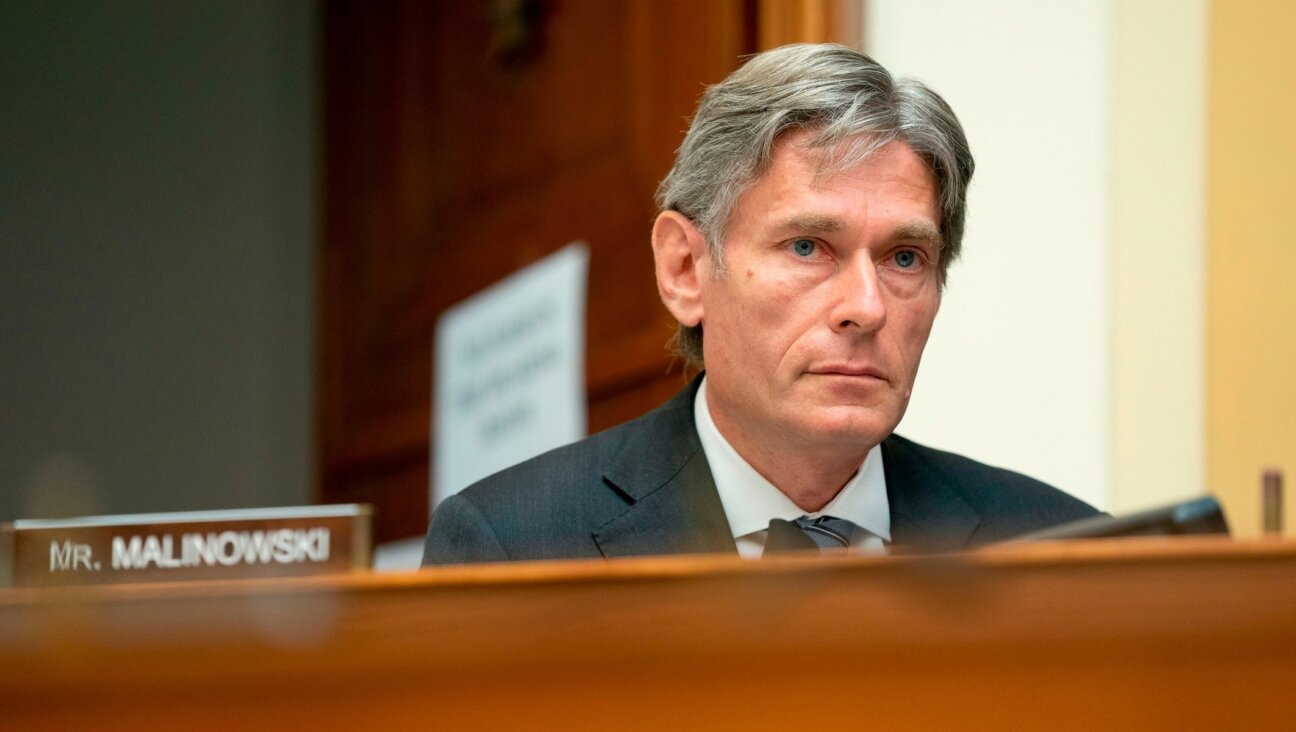Rabbis Urging Action on Ethiopian Jewry
JERUSALEM — Thousands of impoverished Ethiopians fighting for the right to enter Israel have received new support from top rabbis across the religious spectrum.
In separate letters to Israeli officials, the head of Reform Judaism in America, Rabbi Eric Yoffie, and Israel’s newly elected Sephardic chief rabbi, Shlomo Amar, urged action to resolve the problem of the languishing Ethiopians, who are known as Falash Mura. The letters come after the collapse of a 5-month-old government plan to bring more than 18,000 of the group to Israel.
Yoffie, president of the Union of American Hebrew Congregations, sent a letter last week to Interior Minister Avraham Poraz, who is responsible for determining eligibility for those entitled to immigrate to Israel.
“Our Reform congregations, who have long interested themselves in the relief and rescue of this ancient community, believe that they are Jews,” Yoffie wrote. “I recognize, of course, that your government, like ours, has serious financial problems to overcome, and a host of difficult issues to resolve, but given the decision of the last Cabinet to bring these Jews to Israel, I hope you can find room on your agenda to rescue them as rapidly as possible. It would be an act of inclusiveness that would redound to the credit of Israel.”
Yoffie met with Poraz on Wednesday and said afterward that Poraz spoke of the difficulty in determining the Jewishness of all the Ethiopians waiting to come to Israel. Poraz said that for now, he would continue bringing in only 250 to 300 Ethiopians a month.
Yoffie’s letter came two weeks after Amar sent a letter to Prime Minister Sharon. In his May 29 letter, the Sephardic chief rabbi restated his previous ruling that the Falash Mura “are completely Jewish without any doubt.”
Other leaders across the religious spectrum in Israel and the United States have spoken out on behalf of the Falash Mura community, which consists mainly of Ethiopians who converted from Judaism to Christianity under duress in the last century, or their descendants. Tens of thousands have returned to Judaism in the last decade and are now said to be living an Orthodox lifestyle.
Citing the Cabinet decision of February 16 to speed up the immigration process, Amar wrote that Sharon should lead the way, because “it is a great mitzvah [commandment] to expedite the implementation of the aforesaid government decision, in order to save them from the gates of death.”
While religious leaders seem unified on the matter, the issue has sparked great debate. Several Israeli officials have said that the country’s economic crisis will make it impossible to implement the target set by the Knesset in 2001 of bringing in 800 to 1,000 Ethiopians a month.
Yoffie’s letter to Poraz followed the interior minister’s comments June 11 in the Knesset, where he announced that he did not intend to implement the Cabinet decision, but would only bring in about 250 to 300 Ethiopians each month.
“This is all the immigration [of Falash Mura] the country can afford at the moment,” Poraz said, adding that absorbing Ethiopians is “expensive” because of extra funds needed to bring them “up to the level” of other immigrants, culturally and educationally.
Poraz also argued that the Falash Mura are not Jews, but Christians who are being brought to Israel to convert back to Judaism, a statement for which he was roundly criticized by a Knesset lawmaker from the Orthodox Shas party.
“It they were Romanian you would find the money,” said Shas lawmaker Nissim Ze’ev, referring to Poraz’s country of origin. “Tell the truth. You don’t want blacks here.”
While some activists have charged racism — recent protests here by Ethiopians included posters saying “Blacks are people too” — that charge was dismissed in interviews by several Falash Mura supporters. “If that’s the reason, then there wouldn’t be any Ethiopians in Israel,” Yoffie said.
A similar view was voiced by Barbara Ribakove Gordon, executive director of the North American Conference on Ethiopian Jewry, which operates food and educational programs for those still waiting in Ethiopia. “I have heard that charge over and over again, and I have always said it’s not racism, it’s economics,” Ribakove Gordon said.
The financial problems facing the Israeli government and aid organizations was the main topic among those in Israel this week attending the semiannual meeting of the board of governors of the Jewish Agency for Israel. Faced with a $20 million revenue shortfall and cuts in government funds for immigrant programs, delegates discussed the prioritizing of those programs, as well as the sharp drop in immigration so far this year.
Immigrant Absorption Minister Tzipi Livni announced this week that overall immigration to Israel is in a “tailspin,” with only 7,692 immigrants having arrived in Israel during the first five months of the year. Last year, 2,656 Jews arrived in Israel from Ethiopia alone, and 3,274 in 2001. More than 60,000 Ethiopian Jews have immigrated to Israel since 1980.
Ethiopian activists argue that the sharp drop in immigration has freed up substantial funds that could now be used to bring the Falash Mura.
This view was rejected by Michael Rosenberg, head of the Jewish Agency’s immigration and absorption department. “Some of the quote-unquote savings from not bringing the immigrants will offset some of that $20 million [loss], but not all of it,” Rosenberg said. “The rest will have to be cut from other activities. We’ve already cut staff in the former Soviet Union, as well as staff in Israel, to make ends meet.”
Rosenberg said it costs considerably more to settle an Ethiopian, compared with the costs for an immigrant from the former Soviet Union. He said the pace of immigration from Ethiopia is the same as last year, about 60 to 80 a week.
Yoffie told the Forward that he merely wants to know the real reason for the government’s delay in bringing the Falash Mura to Israel. “If this is a financial decision, then the government needs to say so,” Yoffie said. The Reform leader said he was meeting Poraz to tell him that “this is an issue of concern to our constituents, that we think there is justice in the cause.”
Yoffie said, “What you don’t want to do is leave this hanging. From the humanitarian view, it’s unacceptable, and from the Jewish point of view it’s unacceptable.”
A spokesman for Poraz said it was strictly a matter of money. “We don’t know if the State of Israel is ready right now to absorb 20,000 people, and this issue must be checked,” he said. “In order to check this, we will form the committee of ministers” as ordered by the Cabinet in February. The spokesman said a letter to the ministers involved had been sent out in the past few days. He added that Sharon had not been involved in the issue since the Cabinet meeting.
The chairman of the immigrant absorption committee of the Jewish Agency board, Rabbi Yechiel Eckstein, who is the president of the International Fellowship of Christians and Jews, said that while the money shortage is a legitimate issue, it would not interfere if there were a crisis and the government ordered all 20,000 to be brought immediately.
“If you have a situation where you have Jewish lives at stake, then the hell with the money — it’s not a consideration, you do what you have to do to bring Jews to the state,” Eckstein said. “And you increase the staff that check [their Jewish eligibility], and it’s legitimate to check the people, because otherwise 90% of Ethiopia will want to come here, and will have some basis, given history, if you go far back enough, to claim that they are Jewish. But it costs a lot of money to bring and to resettle the Ethiopians.”
Activists say that the situation on the ground in Ethiopia is critical, and the needs are immediate. Studies done in recent months show that the Falash Mura, many of whom are housed in compounds in Addis Ababa and Gondar, are living up to 15 in a room in mud huts without sanitation, are in need of clothing, and are suffering from high mortality and sickness rates.
“I know it’s a very expensive community to absorb,” said Ribakove Gordon. “Is that a good enough reason for not taking suffering Jews? That’s the question that has to be answered.”
















